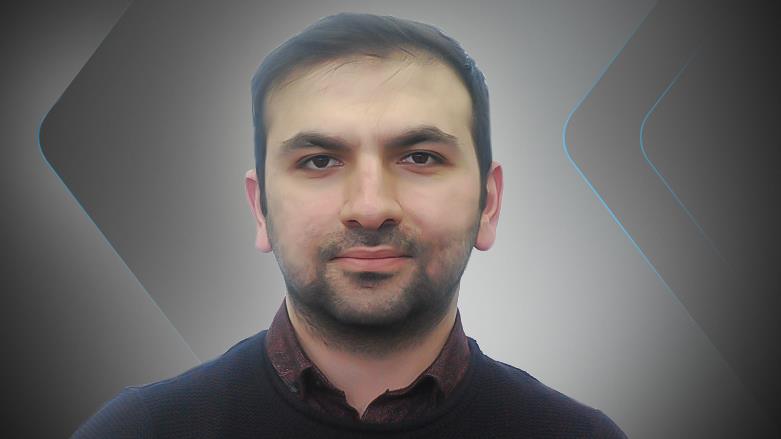Iraq on brink of civil war due to US miscalculations

Following the 2003 war, Iraq has shifted from a pro-Sunni country into a pro-Shia state under the influence of Iran. But until 2011, the American presence in Iraq had prevented the expansion of Iranian militias into the country. This was done through keeping the balance of power between Shias, Sunnis, and Kurds in the government and also among the Iraqi army. Post-2011, American troops withdrew from Iraq under the administration of former president Barack Obama which paved the way for the Iranian militias to expand into Iraq and empower the extremist Shia leaders within the country to the advantage of the Islamic Republic of Iran.
Iraq began to shift from a democratic and coexistent state into a pro-Shia state under the supervision of Iran. American power in Iraq started to decline due to Iran’s high influence on Iraqi leaders which also led to the weakening of the Iraqi army leading to the rise in the presence of Shia militias within the country, most notably the Hashd al-Shaabi.
In 2014, Iraq became a target of the so-called Islamic State (IS) that resulted in the fall of pro-Sunni cities and towns inside the country. The struggle of American troops inside Iraq between 2003 until 2009 due to Sunni extremists encouraged the United States to target those who fought against its soldiers thus creating a power vacuum empowering the Shia militias. Hence, the growth of the Shia militias in Iraq turned the country into a battlefield between the different ethnic groups and religions that resulted in damage to infrastructure and civilian casualties in the pro-Sunni cities and the disputed areas, such as Kirkuk which is inhabited by a majority of Kurds and Turkmen.
After losing much of the disputed areas to Shia militias led by Iranian commanders, relations between Shias and Kurds deteriorated. The increase in tensions between Kurds, Shias, and Sunnis due to the active presence of Iranian-affiliated militias in Iraq has resulted in a breakdown of peaceful coexistence between the different ethnic groups.
Recently, Iraq held its fourth general elections since 2003 which has created more strife between the diverse ethnic groups over the outcomes of the polls. Today, Iraq is on the brink of civil war due to the contest of the outcomes of the elections between different political and ethnic groups. Furthermore, the previous miscalculations of American foreign policy in Iraq led to the weakening of Sunnis and Kurds and the empowering of the Shia militias under the guidance of Iranian forces. A civil war in Iraq will have the same consequences as the Syrian civil war—more militia and armed groups will rise to tear the country apart. This will also slowly develop into another proxy war between Iranian and American forces in the region. Should the situation develop into a war between the two powers, it is expected to start on Iraqi soil rather than Iranian one, an advantage for Tehran.
The US should consider the previous mistakes that were made by the former administration which led to empowering the presence of the Iranian commanders and leaders within Iraqi politics. One of the recent and most significant mistakes America made in Iraq was the Oct. 16, 2017, incident in the disputed areas that led to the withdrawal of Kurdish troops and their replacement with the Iranian militias. This allowed Iran to send armaments and weapons to its militias inside Syria, empowering the Assad regime which in turn is becoming a real threat for Israel. America expected the Oct. 16 takeover to secure another four years for Haider al-Abadi as the prime minister of Iraq and prevent former prime minister Nouri al-Maliki from being elected. However, the Iraqi elections results reveal that Abadi has a limited chance of being re-elected as prime minister as the anti-US and pro-Iranian Muqtada al-Sadr, head of the Sairoon party, secured the majority of Parliament seats followed by Hadi al-Amri, head of the Iranian-backed al-Badr militia.
The current US administration should realize that Iraq is on the brink of a civil war which falls in favor of Iran just as the Syrian civil which increased Iran’s presence in the region. Iran’s presence in Syria has become a real threat to Israel through the Lebanese Hezbollah which has been more active in the country and also in internal Lebanese politics. In the coming weeks, Iraq will witness more escalations, and the sectarian tensions will further increase in many cities across the country.
Lawk Ghafuri is a human rights activist and political writer based in the United Kingdom and the Kurdistan Region. He holds an MSc of Business and Economics from Coventry University.
The views expressed in this article are those of the author and do not necessarily reflect the position of Kurdistan 24.
Editing by Karzan Sulaivany
